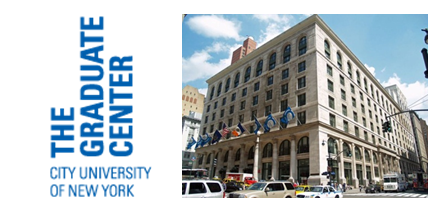Join us in the upcoming Stone Center Inequality Lecture Series at the Graduate Center.
This session consists on a seminar and discussion with Aboozar Hadavand on Wednesday, November 30 at 2:30PM-4:00PM. The seminar will be held at the CUNY Graduate Center, Room 5414. The event will consist of a 30-minute seminar followed by 30-45 minutes for Q&A.
Aboozar Hadavand is a PhD candidate in Economics here at the Graduate Center. His research focuses on economic inequality, labor economics, and economics of education. His presentation will lay out the intersection of age, race, sex, and income inequality in the United States. His findings demonstrate the important differences in trends in inequality within various socio-demographic groups. His research sheds light on the effect of demographic changes on the observed rise in the Gini coefficient.
The abstract of the paper:
This paper questions how much of the existing inequality, and subsequently the increase in inequality in recent decades, is due to life-cycle differences in income. Using microdata from the Luxembourg Income Study, I calculated the respective shares of inequality that result from differences in income within and between different age groups. I find that compared to other countries, the within-cohort proportion of inequality in the U.S. is relatively high and stable. Furthermore, I analyze the evolution of inequality in various other subgroups defined by gender, educational attainment, race, and occupation. By deconstructing basic inequality statistics and figures into within and between measurements for smaller cohorts, I conduct a more granular analysis of inequality. Some of the stylized facts in this paper are: 1) between 1979-2013 there has been a greater rise in inequality within the very young and the very old age-cohorts, 2) over the same period, there has been a rise in inequality among men but a decrease in inequality among women, 3) there has been a larger rise in inequality among the highly educated as opposed to those with lower levels of education, and 4) there are significant differences in the trends of inequality within various occupational groups. I further analyze these findings and provide hypotheses that may explain them.
RSVP to [email protected] or [email protected].
This event is part of the Stone Center Inequality Lecture Series.
Learn more about the Stone Center Inequality Lecture Series at:


